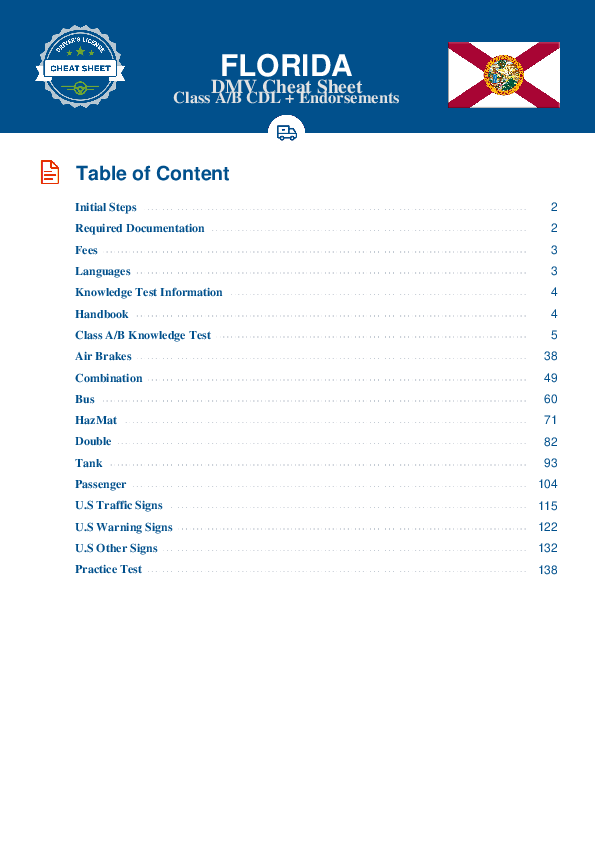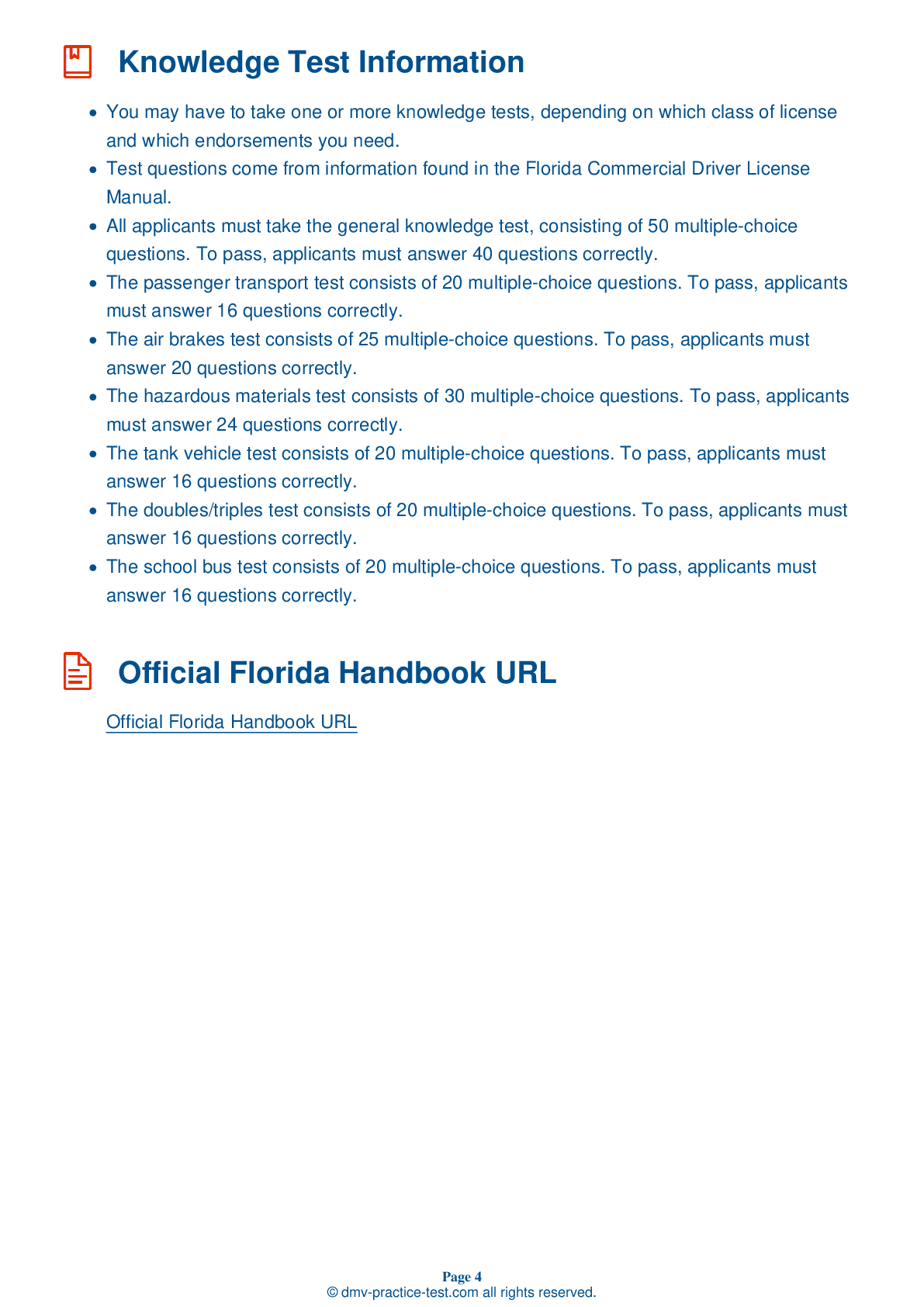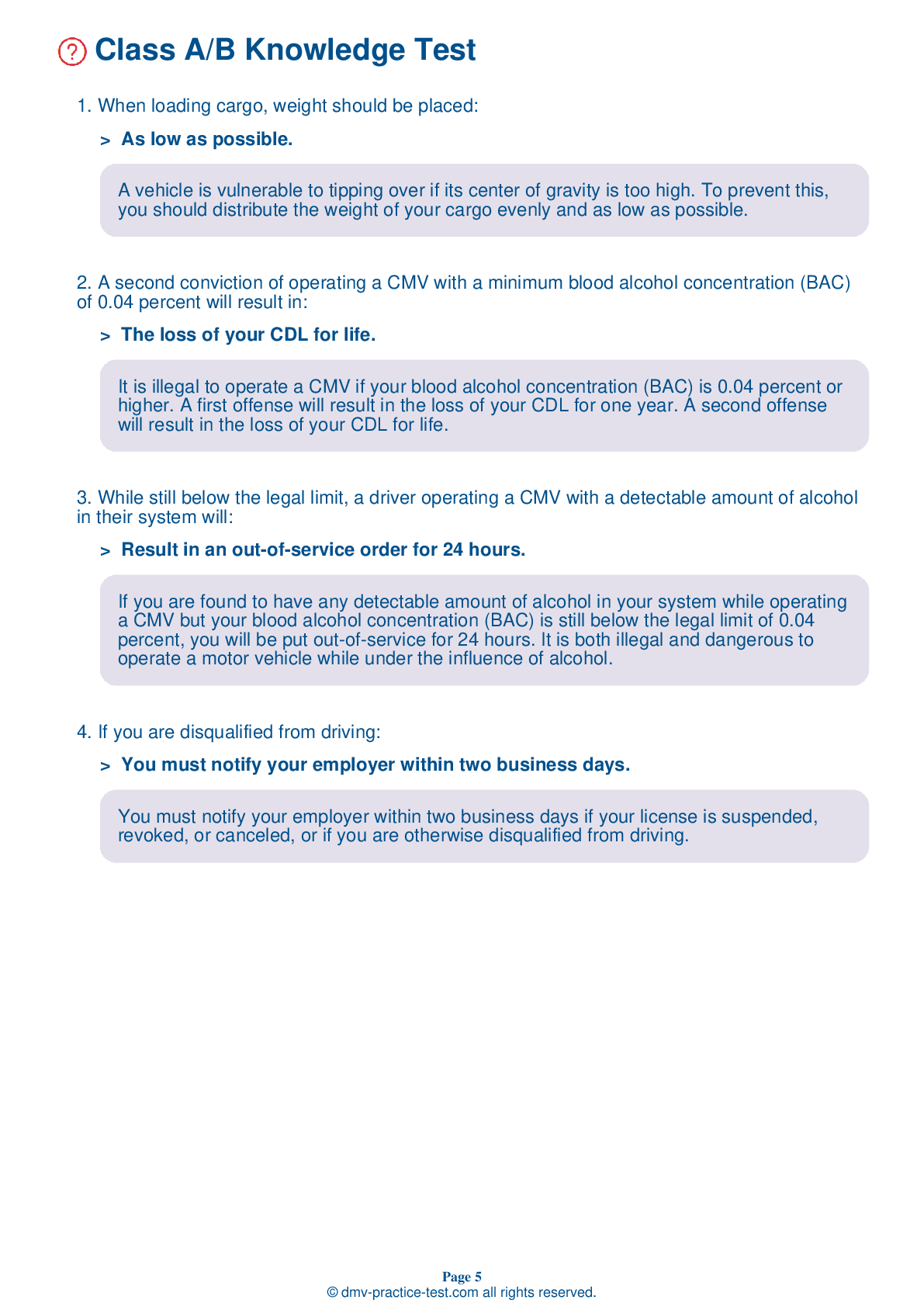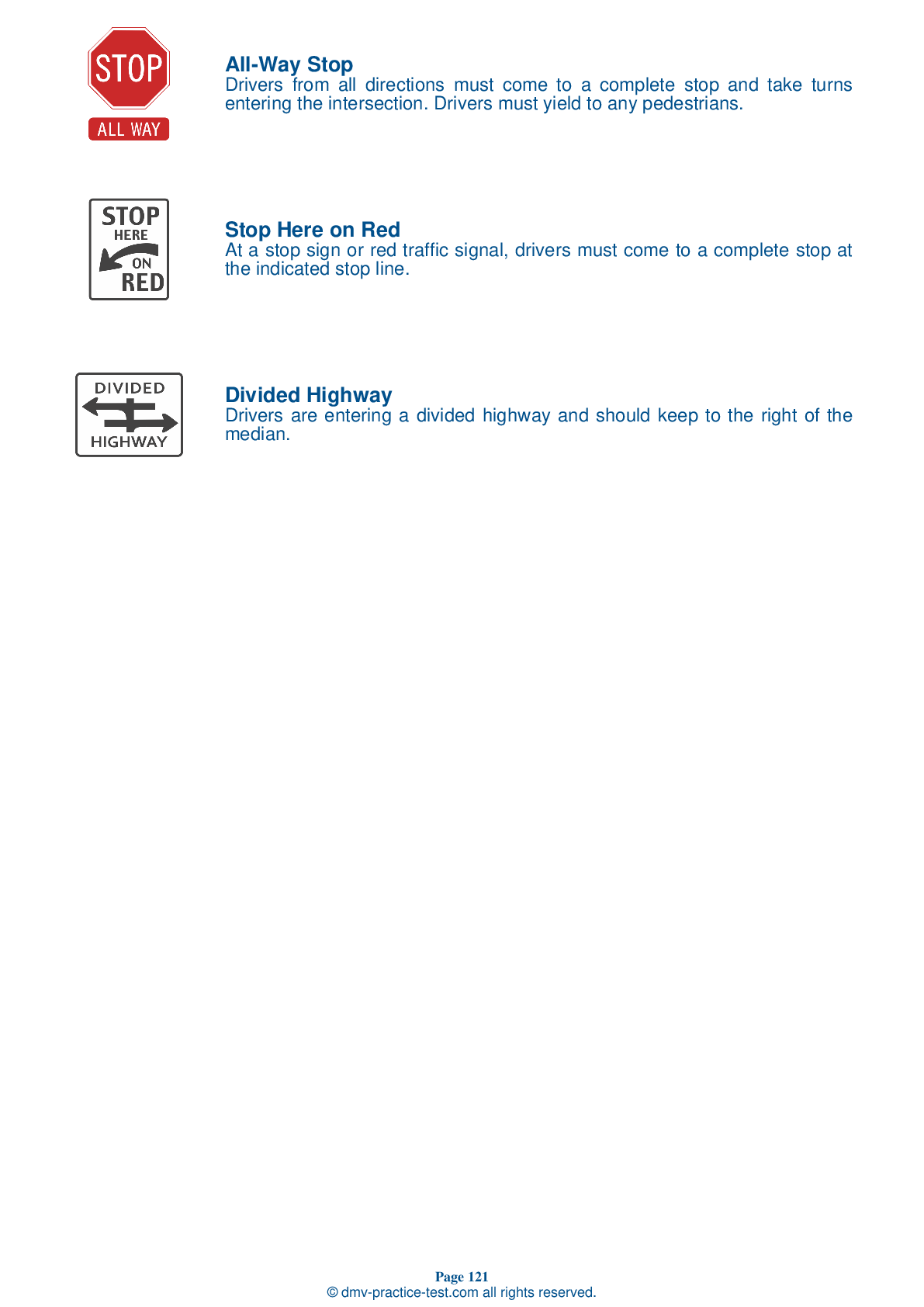Double #2
Double Triple Test | Florida 2026 #2
Train for FREE with our Florida CDL double triple practice test online. The official exam test consists of several obligatory parts, with all of them checking your knowledge of different blocks of road rules. If you need to obtain a FL CDL double triple license in 2026, practice as much as possible. Free sample tests published on our website will help you check and improve your knowledge and boost your grades. Please bear in mind that DMV requirements may vary from state to state.
20
16
20
1 . In low temperatures, bridges usually freeze:
In low temperatures, bridges usually freeze before other road surfaces. When driving in cold weather, especially when weather conditions have been wet, use special caution on bridges and overpasses.
2 . To stay alert while driving, you should:
Splitting driving responsibilities with a second driver lowers the chance that either of you will drive while fatigued. You can also reduce the risk of fatigue by avoiding heavy foods and keeping the interior of the cab cool.
3 . After two violations of any state law regarding hand-held mobile phone use:
If you are twice convicted of violating any state law regarding hand-held mobile phone use, your CDL will be disqualified. Consequences will become more severe with subsequent violations.
4 . After starting the engine, the Anti-Lock Braking System (ABS) light stays on if:
The Anti-Lock Braking System (ABS) indicator light should come on after an engine is started. The light will then turn off. If the light remains on, the ABS it not working properly.
5 . Rust around wheel nuts may mean:
It is important to inspect your tires before every drive. Rust around wheel nuts may indicate that they are loose.
6 . What is the best way to stop if your brakes fail while you are driving downhill?
If your brakes fail on a downgrade, you will need to quickly find something outside that can stop your vehicle. An escape ramp is the best option. If no escape ramp is available, use the least hazardous available option, such as driving into an open field or side road that flattens out or turns uphill.
7 . Compared to talking on a cell phone while driving, texting while driving is:
Texting while driving is even more dangerous than speaking on a phone while driving. In addition to being mentally distracting, texting is also physically distracting.
2026 Florida | Frequently Asked Questions
To acquire a CDL Hazmat endorsement in Florida, you must already hold a valid CDL. Complete a HAZMAT endorsement application, pass a written test, and undergo a TSA background check. Once approved, you can add the Hazmat endorsement to your CDL. Make sure to renew it every five years or according to Florida's specific regulations.
To obtain a CDL Hazmat license, you must first have a Commercial Driver's License (CDL). You must also be at least 21 years old, a U.S. citizen or have legal status, and be able to read and speak English. Additionally, you need to pass the Hazmat knowledge test and undergo a Transportation Security Administration (TSA) background check.
When applying for a CDL Hazmat endorsement, you need to provide proof of U.S. citizenship or legal status, such as a passport or birth certificate. You also need your current CDL. Additionally, you must complete the Hazardous Materials Endorsement application form, and provide fingerprints for the TSA background check. Always check with local regulations for any additional requirements.
Yes, there is a dedicated written test for the CDL Hazmat endorsement. The Hazardous Materials Endorsement Knowledge Test assesses your understanding of the rules and regulations related to transporting hazardous materials. It covers topics like loading and unloading, bulk packaging marking, driving and parking rules, and emergency response procedures.
The written test for the CDL Hazmat endorsement covers a variety of topics related to handling hazardous materials. These include understanding hazard classifications, shipping papers, placarding rules, emergency response procedures, safe loading and unloading practices, and incident reporting requirements. It also tests knowledge of federal and state regulations for transporting hazardous materials.
Yes, acquiring a CDL Hazmat endorsement involves additional charges. The cost includes a fee for the endorsement application, a fingerprinting fee for the TSA security threat assessment, and a fee for the knowledge test. The exact amounts can vary by state, so it's best to check with your local DMV or equivalent agency for specific pricing.
Yes, obtaining a CDL Hazmat endorsement requires passing a Transportation Security Administration (TSA) background check. This involves fingerprinting and checking criminal, immigration, and terrorism records. The goal is to ensure the safety and security of hazardous material transportation. Applicants must also have no disqualifying criminal offenses.
Yes, specialized training is necessary for the CDL Hazmat endorsement. Applicants must pass a written knowledge test on handling hazardous materials. While not required, many choose to enroll in training programs to prepare. After passing the test, a background check by the TSA is also required before the Hazmat endorsement is granted.
No, you cannot legally transport hazardous materials without a valid CDL Hazmat endorsement in the United States. This endorsement ensures that drivers are qualified and understand the necessary safety protocols for handling hazardous materials. Violation of this law can lead to hefty fines and potential loss of commercial driving privileges.
You can add the Hazmat endorsement to your current CDL. You don't need to apply for a new CDL. However, you must pass the Hazmat knowledge test and a TSA background check. Once you've passed these, you can add the endorsement to your existing CDL by visiting your local Department of Motor Vehicles (DMV).



